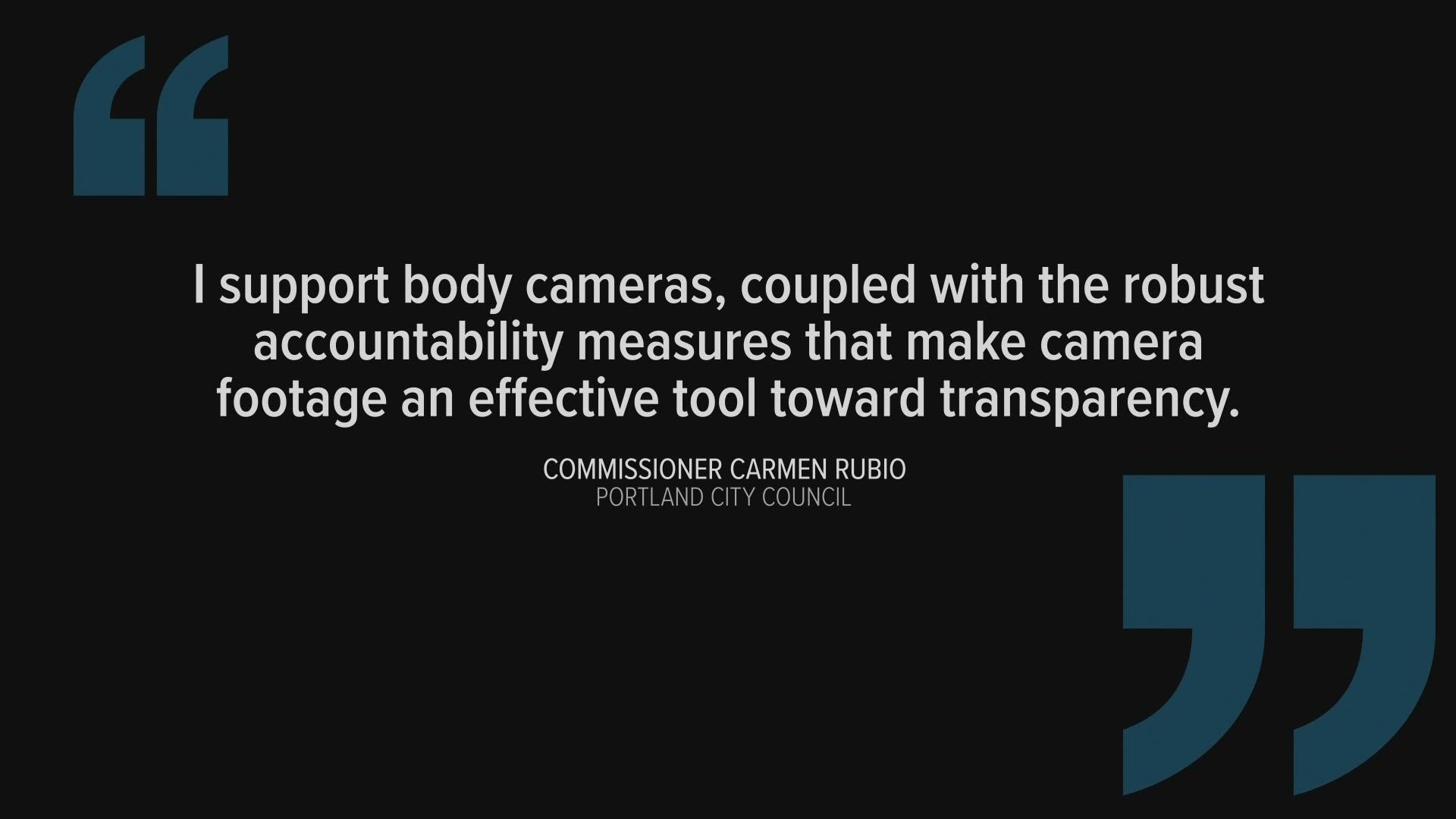PORTLAND, Ore. — A growing number of Portland city commissioners want to equip police officers with body worn cameras. Portland is the largest police department in the country that doesn’t have body cams.
Commissioner Mingus Mapps called for the immediate adoption of body cameras in an op-ed that appeared in The Oregonian this weekend.
Commissioner Carmen Rubio has also become an advocate.
“I support body cameras, coupled with the robust accountability measures that make camera footage an effective tool toward transparency,” said Rubio in a statement emailed to KGW. “We need that accountability and transparency so we can invest with confidence in a community safety system that respects all Portlanders and keeps them safe.”
Commissioner Dan Ryan also shared his support for body cams, in a statement provided to KGW late Monday.
“I have been publicly advocating for the use of body-worn cameras since I ran for office in the summer of 2020, and I will continue to push for their implementation as an effective method of police accountability,” said Ryan.
A KGW investigation in February found the Portland Police Bureau is the only department among the 75 largest municipal law enforcement agencies in the U.S. where officers don’t use body-worn cameras.
City commissioners had been reluctant to equip officers with body-worn cameras because of funding concerns and questions about their effectiveness.
In August, Portland Mayor Ted Wheeler directed the police bureau to begin researching equipment options, get bids from vendors and pursue possible grant funding.
The city has explored police body cams for nearly a decade, but those efforts have been stymied by a lack of money and politics. The Portland Police Bureau estimates it would cost roughly $2.9 million to get a body-worn camera program up and running, with ongoing costs of about $1.8 million a year.
The U.S. Department of Justice has asked Portland police to adopt a body-worn camera program as part of a 2014 settlement agreement with the federal government on police use of force and training.
Previously, City Commissioner Jo Ann Hardesty, an outspoken critic of body cameras, questioned whether they are effective. After being briefed by Department of Justice lawyers this summer, Hardesty changed her tone and appeared open to the idea.
“I support the process of discussing body worn cameras in mediation with the Department of Justice,” said Hardesty, through a spokesperson.

